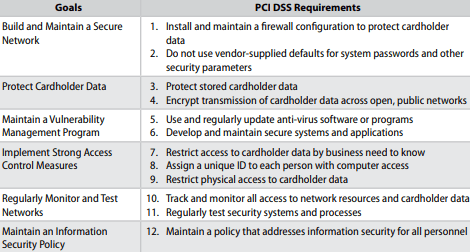Data breaches have become a growing concern as technology continues to evolve and become more and more prevalent in our lives. Every day, we provide companies with our personal information, and the expectation is that they will keep that information safe and secure. But, when a company fails to protect the data entrusted to them, what can you do? Can you sue a company for a data breach?
This is a complicated question, and one that requires a thorough understanding of data breach laws and regulations. In this article, we will dive into this issue, exploring the legal implications of data breaches and the steps you can take if your personal information has been compromised. We will also discuss the various legal protections available and how to best protect yourself from a data breach.
Yes, you can sue a company for a data breach. If you have suffered a financial loss or any other type of damage due to a data breach, then you can file a lawsuit against the company responsible. It is important to understand the legal rights you have in order to be able to file a successful lawsuit. You should contact an experienced lawyer to understand the specific laws in your state or country that may apply to your case. You may need to prove that the company was negligent in its security practices, or that the breach was caused by its failure to protect your data. A lawyer can help you determine the best course of action.

Can You Sue A Company For A Data Breach?
Data breaches are one of the major threats to businesses today. Every day, more and more companies are finding their confidential information exposed to the public. As a result, many people are wondering if they can sue a company for a data breach.
What Is A Data Breach?
A data breach is an incident in which confidential or sensitive information is lost, exposed, or accessed without authorization. This can include personal information such as names, addresses, Social Security numbers, financial information, credit card numbers, and other sensitive data that could result in identity theft or financial losses.
Data breaches can occur when a hacker gains access to a company’s systems or when an employee accidentally exposes or leaks the information. Data breaches can also occur when a third party, such as a vendor, accidentally exposes the information.
Can You Sue A Company For A Data Breach?
The answer to this question depends on the circumstances of the data breach. In some cases, a person may be able to sue a company for a data breach if the company failed to take reasonable steps to protect the information. For example, if a company failed to implement basic security measures, such as encrypting confidential data, or failed to provide adequate training to employees on how to handle sensitive information, then a person may be able to sue the company for a data breach.
In other cases, a person may not be able to sue a company for a data breach if the company took reasonable steps to protect the information. For example, if a company implemented security measures, such as encrypting sensitive data, or trained its employees on how to handle confidential information, then a person may not be able to sue the company for a data breach.
What Are The Legal Remedies For A Data Breach?
If a person is able to sue a company for a data breach, then they may be able to receive legal remedies. These may include monetary damages, such as compensation for any losses incurred due to the data breach, or injunctive relief, such as an order from the court requiring the company to take steps to protect the information in the future.
In addition, a person may be able to receive punitive damages, which are damages awarded to punish the company for its negligence or recklessness in handling confidential information. Punitive damages are generally reserved for cases in which the company acted with malice or disregard for the rights of its customers.
Conclusion
Data breaches can be a major threat to businesses and individuals alike. In some cases, a person may be able to sue a company for a data breach if the company failed to take reasonable steps to protect the information. If successful, a person may be able to receive legal remedies, such as monetary damages, injunctive relief, or punitive damages.
Frequently Asked Questions About Suing A Company For A Data Breach
Data breaches are a serious issue, and many people wonder if they can take legal action against a company that has suffered a data breach. Here are some answers to frequently asked questions about suing a company for a data breach.
Can I Sue a Company For a Data Breach?
Yes, you can sue a company for a data breach. Depending on the type of data breach and the specific circumstances, you may be able to sue for damages, such as lost wages, medical expenses, or emotional distress. You may also be able to seek injunctive relief, such as a court order requiring the company to take specific steps to protect your data.
It is important to note that in order to successfully sue a company for a data breach, you will need to be able to show that the company was negligent in protecting your data. This can be a difficult task, as the company may have taken reasonable measures to protect your data.
What Kind Of Damages Can I Recover In A Data Breach Lawsuit?
If you are successful in a data breach lawsuit, you may be able to recover a variety of damages. These can include economic damages, such as lost wages or medical expenses, as well as non-economic damages, such as pain and suffering or emotional distress. You may also be able to recover punitive damages, which are designed to punish the company for its negligence.
It is important to note that the amount of damages that you can recover in a data breach lawsuit will depend on the specific facts of your case. An experienced attorney can help you determine the amount of damages that you may be able to recover.
What Should I Do If My Data Has Been Breached?
If your data has been breached, it is important to take action quickly to protect yourself. You should first contact the company that experienced the data breach and inquire about steps that you can take to protect yourself from identity theft or other malicious activities. You should also contact the Federal Trade Commission or your state Attorney General’s office to report the data breach and to get additional advice about protecting yourself.
It is also important to monitor your credit report and bank statements for any suspicious activity. You should also take steps to protect your online accounts, such as changing your passwords and enabling two-factor authentication.
What Should I Do If I Think I Have A Data Breach Claim?
If you think you have a data breach claim, it is important to contact an experienced attorney as soon as possible. An experienced attorney can help you determine whether you have a valid claim and can advise you on the best way to proceed. Your attorney can also help you gather the evidence needed to prove your claim, such as documents showing that the company failed to take reasonable steps to protect your data.
It is also important to note that the statute of limitations for data breach claims can vary from state to state. An experienced attorney can help you understand the applicable statute of limitations and make sure that you take action before it expires.
What Should I Do If I Have Been Subjected To Identity Theft?
If you have been subjected to identity theft, it is important to take action quickly to protect yourself. You should first contact the credit bureaus and request that they place a fraud alert on your credit report. You should also contact the Federal Trade Commission and any other relevant agencies to report the identity theft and to get additional advice about protecting yourself.
It is also important to monitor your credit report and bank statements for any suspicious activity. You may also want to consider placing a security freeze on your credit report, which can help prevent others from opening new accounts in your name. An experienced attorney can help you understand your rights and options in the event of identity theft.

In conclusion, when it comes to suing a company for a data breach, it is not a simple matter. There are many complex legal and technical issues that need to be considered. The first step is to understand the legal implications of data breaches and obtain advice from a legal professional. It is also important to ascertain the extent and severity of the breach, as this can have a significant impact on the outcome of any legal action. Ultimately, whether or not you can sue a company for a data breach will depend on the specific circumstances of the breach and the applicable laws.


